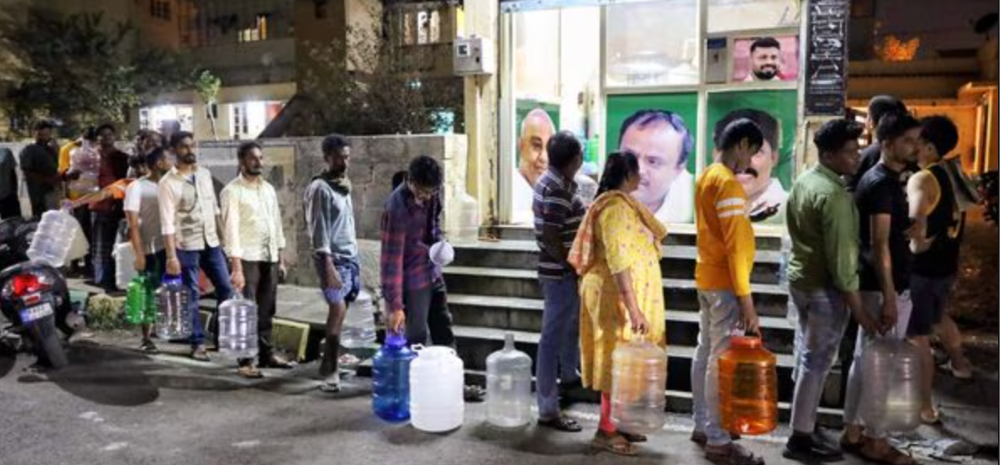In order to promote sustainable practices, the Bangalore Water Supply and Sewerage Board (BWSSB) has mandated that all RWAs in the city install tap aerators.

Bulk customers may face a punishment of Rs 5,000 and a 50% cut in water supply if the tap aerator installation is not completed by March 31.
Bangalore Water Supply and Sewerage Board (BWSSB) Mandate Tap Aerators
By installing water restrictors and aerators, which can cut water waste by 25–40%, BWSSB seeks to alleviate the water issue and demand.RWAs have received notices asking them to install water restrictors/aerators prior to the deadline in order to avoid fines and reduced supplies.
Bengaluru’s poor monsoon rainfall, declining groundwater levels, and growing demand for Cauvery water as a result of drying borewells are all contributing factors to the city’s water shortage.
The BWSSB has released warnings urging large users to install flow restrictors/aerators, including government buildings, large residential complexes, and commercial establishments. Users who comply will receive eco-friendly green star awards, and non-compliant users may face fines of up to Rs 500 per day.
In order to guarantee that individuals in need have access to clean water, the goal is to attain positive compliance and conserve water resources.
Since 2017, the Bangalore Apartments Federation has been advocating for aerators and is requesting that its members adhere to the installation requirement.
2,600 MLD of water are needed daily in Bengaluru; 1,450 MLD come from the Cauvery River and 650 MLD come from groundwater sources. The city’s water supply is impacted by the 30–40% of public borewells—both BBMP-controlled and BWSSB-controlled—that are dry.
Number of Private Residential Borewells Decreasing
The number of private residential borewells is also decreasing; over 4.5 lakh borewells that were drilled throughout the years by households and businesses are drying up. The availability of 650 MLD from groundwater sources has been impacted by the drying up of both public and private borewells.
The Cauvery Stage-V project by BWSSB intends to relieve the scarcity of water by supplying an extra 750 MLD through piped water supply networks in outlying areas. The project, which is expected to be completed by May 2024, will supply 110 villages outside of Bengaluru with drinking water.
It is anticipated that the project will ease the water situation in outlying areas without sufficient infrastructure for water supplies. The necessity of conservation efforts and sustainable water management techniques is underscored by the depletion of groundwater and dependence on Cauvery water.
The necessity of both individual and group actions to preserve water resources and lessen the effects of water shortage is highlighted by the implementation of tap aerator installation. In order to effectively handle Bengaluru’s water challenges, cooperation between RWAs, community initiatives, and government organizations is necessary.
Installing tap aerators, encouraging groundwater recharge, and increasing piped water supplies are examples of sustainable water management strategies that Bengaluru needs to ensure water security.











